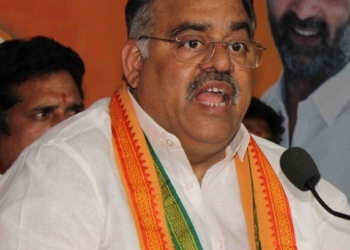In wake of the World Health Organisation’s Global TB Report 2022, released on October 27, that notes the impact of the Covid-19 pandemic on the diagnosis, treatment and burden of disease for TB all over, India on Friday said that the country has, in fact, performed far better on major metrics as compared to others.
“India’s TB incidence for the year 2021 is 210 per 100,000 population – compared to the baseline year of 2015 (incidence was 256 per lakh of population in India); there has been an 18 per cent decline which is 7 percentage points better than the global average of 11 per cent. These figures also place India at the 36th position in terms of incidence rates (from largest to smallest incidence numbers),” the Health Ministry said.
While the Covid-19 pandemic impacted TB programmes across the world, India was able to successfully offset the disruptions caused, through the introduction of critical interventions in 2020 and 2021 – this led to the National TB Elimination Programme notifying over 21.4 lakh TB cases – 18 per cent higher than 2020, it said.
It said further that in 2021, over 22 crore people were screened for TB. The aim has been to find and detect more cases to arrest onwards transmission of the disease in the community which has contributed to the decline in incidence. For this purpose, India has also scaled up diagnostic capability to strengthen detection efforts. Indigenously-developed molecular diagnostics have helped expand the reach of diagnosis to every part of the country today. India has over 4,760 molecular diagnostic machines across the country, reaching every district.
Against this backdrop, and prior to the publication of the Global Report, the Ministry of Health and Family Welfare had communicated to WHO that the Ministry has already initiated domestic studies to arrive at a more accurate estimate of incidence and mortality rates in a systematic manner and India’s data will be provided after conclusion of studies in early part of 2023.
The WHO has also acknowledged the Health Ministry’s position on this and noted in the Report that “estimates of TB incidence and mortality in India for 2000-2021 are interim and subject to finalisation, in consultation with India’s Ministry of Health & Family Welfare”.
The WHO Report also notes the crucial role of nutrition and under-nutrition as a contributory factor to the development of active TB disease. In this respect, the ministry said, the TB Programme’s nutrition support scheme – Ni-kshay Poshan Yojana – has proved critical for the vulnerable.
On this, the Health Ministry said: “During 2020 and 2021, India made cash transfers of 89 million dollars (INR 670 crores) to TB patients through a Direct Benefit Transfer programme. Moreover, in September 2022, the Honourable President of India has launched a first-of-its-kind initiative, Pradhan Mantri TB Mukt Bharat Abhiyan to provide additional nutritional support to those on TB treatment, through contributions from community including individuals and organizations. Till date, 40,492 donors have come forward to support over 10,45,269 patients across the country.”























